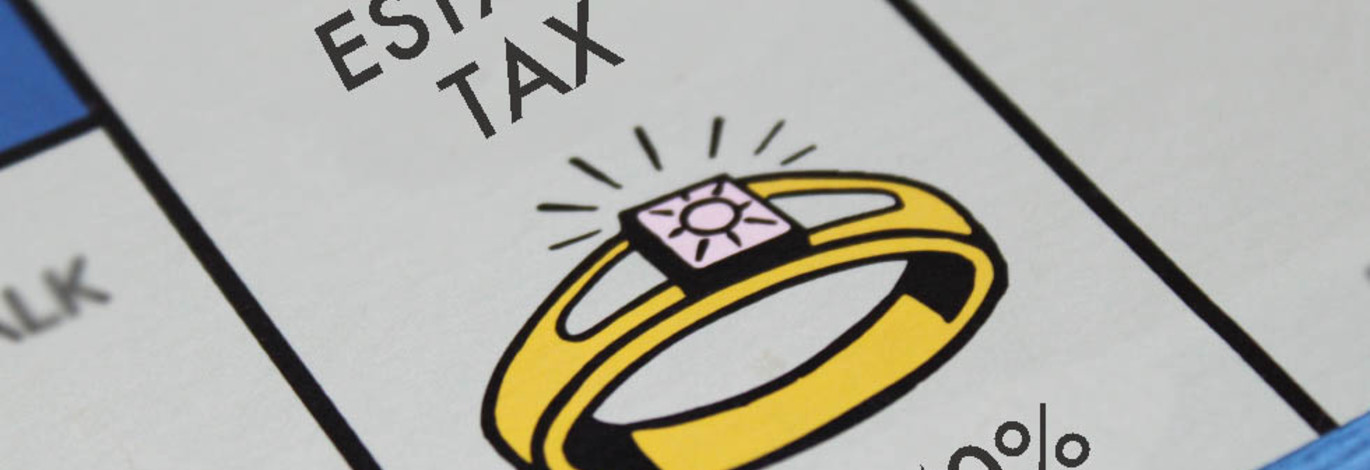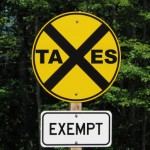Foreign Earned Income Exclusion Basics
The Foreign Earned Income Exclusion is the Expat’s first, and sometimes only, line of defense against the IRS. It allows you to eliminate up to $97,600 in salary from your US taxable income in 2013, and can provide additional benefits to those living, working, and operating a business abroad.
Just about every tax article on this site is based on the Foreign Earned Income Exclusion in one way or another, so it is imperative that you have a solid understanding of this US tax law. Whether you are planning to move abroad, or you have been out of the US for years, you should become an expert on the inner workings of the Foreign Earned Income Exclusion.
- Note that the Foreign Earned Income Exclusion applies to salary you earn from your own business or as an employee of someone else. It does not apply to retirement or other investment income. If you are a pensioner with no intention of getting a job or starting a business offshore, this posting is not for you.
- This article has some very useful information. For updated FEIE numbers, see: Foreign Earned Income Exclusion 2015
An Introduction to the Foreign Earned Income Exclusion
As stated above, the Foreign Earned Income Exclusion allows you to eliminate up to $97,600 in salary from your US taxable income.
For example, if you are an employee of a corporation in Belize or Panama, you qualify for the Foreign Earned Income exclusion, and you earn $65,000 in wages, you will pay no Federal income tax. Likewise, if you earn $200,000 in salary while qualifying for the exclusion, you will pay US tax on the amount over $97,600, or on $102,400.
Foreign Tax Credit: If you are paying tax to your country of residence, then the Foreign Tax Credit will step in and eliminate any double taxation. But, for the balance of this article, let’s assume you pay no local tax, which is the case with the majority of my clients, and leave the Foreign Tax Credit for another time.
Note that I said “no Federal income tax.” It is possible to qualify for the Foreign Earned Income Exclusion and still be considered a resident of a State in the US…especially an aggressive cash starved State like California. If that occurs, you may have to pay State tax on 100% of your salary. You should review your State laws prior to moving abroad to ensure you don’t get hit with a surprise tax bill.
Also, income tax does not include social taxes, such as FICA, Social Security, Medicare, Obamacare, or Self Employment taxes. If you are an employee of a US company while qualifying for the exclusion, you and your employer will pay these taxes. If you are running a business and not incorporated offshore, you will pay about 15% in Self Employment tax which is not reduced by the Foreign Earned Income Exclusion. To avoid this, you or your employer can incorporate a subsidiary offshore from which you will draw a salary.
Finally, the Foreign Earned Income Exclusion is based on United States Dollars earned. If your country’s currency is appreciating vs. the dollar, the value of the exclusion to you is declining. For a summary of these issues, see: Weak Dollar Crushing the Foreign Earned Income Exclusion
Qualifying for the Foreign Earned Income Exclusion
There are two ways to qualify for the Foreign Earned Income Exclusion:
1) The physical presence test, and
2) The residency test.
The first is relatively simple to calculate and does not require you to live anywhere in particular. The second allows you to spend much more time in the United States, but has many conditions and requirements attached to it.
Physical Presence Test
The physical presence test is easy to define. You qualify for the Foreign Earned Income Exclusion if you are out of the United States for 330 out of any 365 day period. It does not require you to be out of the country for 330 days in a calendar year…any 12 month period will do.
So, if you are abroad from April 1 2013 to April 2, 2014, and only spend 10 days in the US visiting family during this time, you qualify for the exclusion. You can exclude up to $97,600 in salary earned from April to April from your US income tax returns.
Because you are using an April to April calendar, your Foreign Earned Income Exclusion will be prorated on your 2013 and 2014 personal income tax returns. If you earn $100,000 in 2013, you will be able to exclude about $73,200 (75% of the $96,700 Foreign Earned Income Exclusion). You will then be able to exclude around $24,400 on your 2014 tax return in salary earned from January 1, 2014 through March 31, 2014.
When you rely on the physical presence test, it does not matter where you are in the world…just that you are out of the US for 330 days out of 365. You can move around as much as you like (see below), are not required to have a home base, and are not required to be in any one country for a certain period of time.
Of course, my favorite clients will always find a way to make a simple matter complicated. Many of you will try and maximize your time in the US, coming up against the 35 day limit. That means you need to understand the definition of travel days vs. days abroad and take in to account time over international waters. This becomes especially important for those who travel through the US, those who take long flights through multiple time zones, and those who travel by ship. For a detailed review of these issues, see my article: Changes to the Foreign Earned Income Exclusion Physical Presence Test Travel Days
Residency Test
While the physical presence test is relatively simple to calculate, qualifying for the Foreign Earned Income Exclusion using the residency test can be a challenge. First, the residency test requires you to be resident in a country for a full calendar year. This usually means you must utilize the physical presence test your first year abroad, and then step up to the residency test.
Next, you must move to a city and demonstrate that you plan to make it your home. The key to the test is your intent to move to that place for the forcible future, with no intent to return to the United States. Any time a tax issue is determined by something as fuzzy as intent, you are asking for trouble in an audit. You must compile a great litany of evidence in case your use of the Foreign Earned Income Exclusion is challenged…especially if your intentions change and you return to the US after a few years.
To put it another way, you are required to prove to an IRS examiner that you moved to your particular city permanently and with no intent to return to the States in the forcible future. Yes, I am saying that you have the burden of proving that you qualify for the Foreign Earned Income Exclusion under the residency test. It is up to you to substantiate your case and not up to the IRS to disprove your claim.
Intent to return to the US is often at the heart of the battle in these examinations. One common case is the “short term” work assignment. If you are sent to Panama by your employer on a 3 year assignment, you probably do not qualify for the Foreign Earned Income Exclusion under the residency test. This is because the evidence suggests that you intend to return to the United States at the end of that 3 year contract.
I see this all the time with military contractors and oil well workers. They want to claim they are residents of Iraq or some war torn strip of land, though their families are in the States and they have no ties to the country to which they have been sent. In these cases, the contractor must rely on the physical presence test, as he will never qualify under the residency test.
In contrast, it would be possible to move to Panama with no intent to return to America, following all of the suggestions below, and then being forced back home after two years due to an unforeseen circumstance.
Such a person will likely qualify as a resident of Panama, even though their stay was short. It is therefore conceivable that someone in Panama for two years would qualify under the residency test, while someone in Iraq for five years would not.
At the other end of the spectrum is the perpetual traveler. This is the person who leaves the US and never puts down sufficient roots to be considered a resident of any particular country. I have had a number of clients who spend a month or two in each country and have no home base.
The heart of the residency test is your intent to make a particular place your home. If you never put down roots, you are not a tax resident of any country and you land back on your default tax home, the United States (without passing Go and without collecting $200). Therefore, the perpetual traveler must qualify for the Foreign Earned Income Exclusion using the physical presence test and not the residency test.
- Tip: If you are a contractor or perpetual traveler with family in the States, have them visit you at a Caribbean Island paradise or somewhere else outside of the US. I guarantee this vacation will be less costly that risking the loss of the Foreign Earned Income Exclusion.
It is possible to travel extensively and still qualify under the residency test. If you are road warrior, then you should always be returning to a home base. If all of your adventures originate from and return to from Medellin, then Colombia is your home port. If you can demonstrate that you have such a home port, and follow the other keys below, then you have a good shot at being considered a resident.
As I have said, the burden of proof is on you, not the IRS, when it comes to the residency test. The evidence required to prove up the Foreign Earned Income Exclusion using the residency test will vary with each case, but here are a few keys:
1) Obtain a residency permit from your new country.
2) It is best if you spend 6 months or more in your country of residence. You are considered a tax resident in most countries if you spend six months out of the year there.
3) Get a work permit or other authorization to operate a business in your country of residence.
4) File tax returns in your country of residence. You can structure a business with an offshore corporation to limit taxes as permitted, but you should file some kind of personal income tax return to show you are a member of that society.
5) Cut as many ties as you can with the United States. It is especially important to sell or rent out on a long term lease any real estate. You should also limit US investments, bank accounts, and any other link you can think of.
6) Make as many connections with your new country and local community as possible. For example, get a driving license, local ID card, open local bank accounts with debit cards, and join a club or two.
In item #1 above, I note that your residency permit should be from your new country. Many clients grab for the easiest authorization available, such as the Belize QRP visa, and have no intention of living in Belize. It is important to at least begin the process of obtaining residency in your new country, and not in a country where you will have no other ties.
It is possible to qualify as a tax resident for US purposes and not have a residency permit from your new country. If you are unable to afford or qualify for residency, then each of the other suggestions above become all the more important. I also suggest you at least begin the application process prior to using the residency test.
Why all the fuss about the residency test? Why spend the time, effort and money to qualify? Because, once you are a tax resident of another country, you can spend a lot more time in the US. You are no longer limited to the 35 days you get with the physical presence test and you no longer need watch the calendar like a school girl hoping for summer.
How much time do you get in the good ole US of A? That is a difficult question. First, you should not be working while here. All work for your employer should be done abroad. Next, you can’t spend six months or more hanging around. Once you are in the US for 6 months, you are considered a tax resident.
Other than these limits, you can spend as much time in the US as you like, keeping in mind that you must be able to convince the IRS in an audit that you are a resident of your “home” country. I like to tell clients that they can spend 60 days here without risk, and 90 days if they have a good reason. Once you exceed these numbers, it becomes quite challenging to prove you are a resident of another country.
Of course, each case is different and I can envision a scenario where four months in the US would pass inspection. I can also imagine a case where 90 days in the US would not be acceptable. It will all depend on the facts and circumstances of your situation and the quality of your connections to your country of residence.
Foreign Earned Income Exclusion – Use it or Lose It
The Foreign Earned Income Exclusion is an all or nothing proposition. If you qualify, you get to deduct $97,600 on your 2013 personal income tax return. If you do not qualify, you get to deduct nothing and all of your income is taxable in the United States so long as you carry a US passport.
It is a very harsh law and the IRS goes in to Tax Court all the time to take the exclusion away from someone who missed qualifying by a day or two, or someone who failed to meet their burden of proof on the residency test. And, remember, a lot of audits cover three or four years, so losing the exclusion could result in a tax bill of well over $100,000 with interest and penalties.
Also, to get the benefit of the Foreign Earned Income Exclusion you must file your US tax returns. If you do not file, and you are chased down by the IRS, you will lose the right to take the exclusion. Yes, even if you spent every day for five years outside of the US, and there would be no question of your qualifying, the IRS has the right to take away the exclusion for your failure to file.
I am not saying you will lose the exclusion simply because you have not filed on time. If the IRS is not on your trail, and you come forward voluntarily, you will be able to take the full Foreign Earned Income Exclusion. It is only those whom are found out, usually through an offshore bank account, a computer generated audit, the government randomly seeking out non-filers, their family or employer being audited, or some other issue that brings them to the attention of the IRS, who lose the exclusion.
Conclusion
As you can see, the Foreign Earned Income Exclusion is fraught with complexity and nuance. Before you start an offshore business, or before going to work outside the US, consult with an expert in this area. Even if you have been living abroad for years, it is in your best interest to have an experienced professional review your prior filings, plan out your next few years, and make sure you are in compliance.
If you have not filed your US tax returns for a few years, it is imperative that you do so to ensure you qualify for the Foreign Earned Income Exclusion. If, in addition to non-filing, you have an unreported offshore account, you should consider joining the current IRS amnesty program. For information on this, see my article: IRS Voluntary Disclosure Program Gives Big Breaks to ExPats. Basically, if you will owe no tax on your late filed returns after taking the Foreign Earned Income Exclusion in to account, then you will also avoid penalties for failing to report your offshore bank account(s).
If you have any questions on the exclusion, or need assistance with planning your international business or preparing your US tax returns, please contact me at (619) 483-1708 or by email to info@premieroffshore.com. We are very experienced in these matters and consultations are confidential.
- For updated FEIE numbers, see: Foreign Earned Income Exclusion 2020












Leave a Reply
Want to join the discussion?Feel free to contribute!